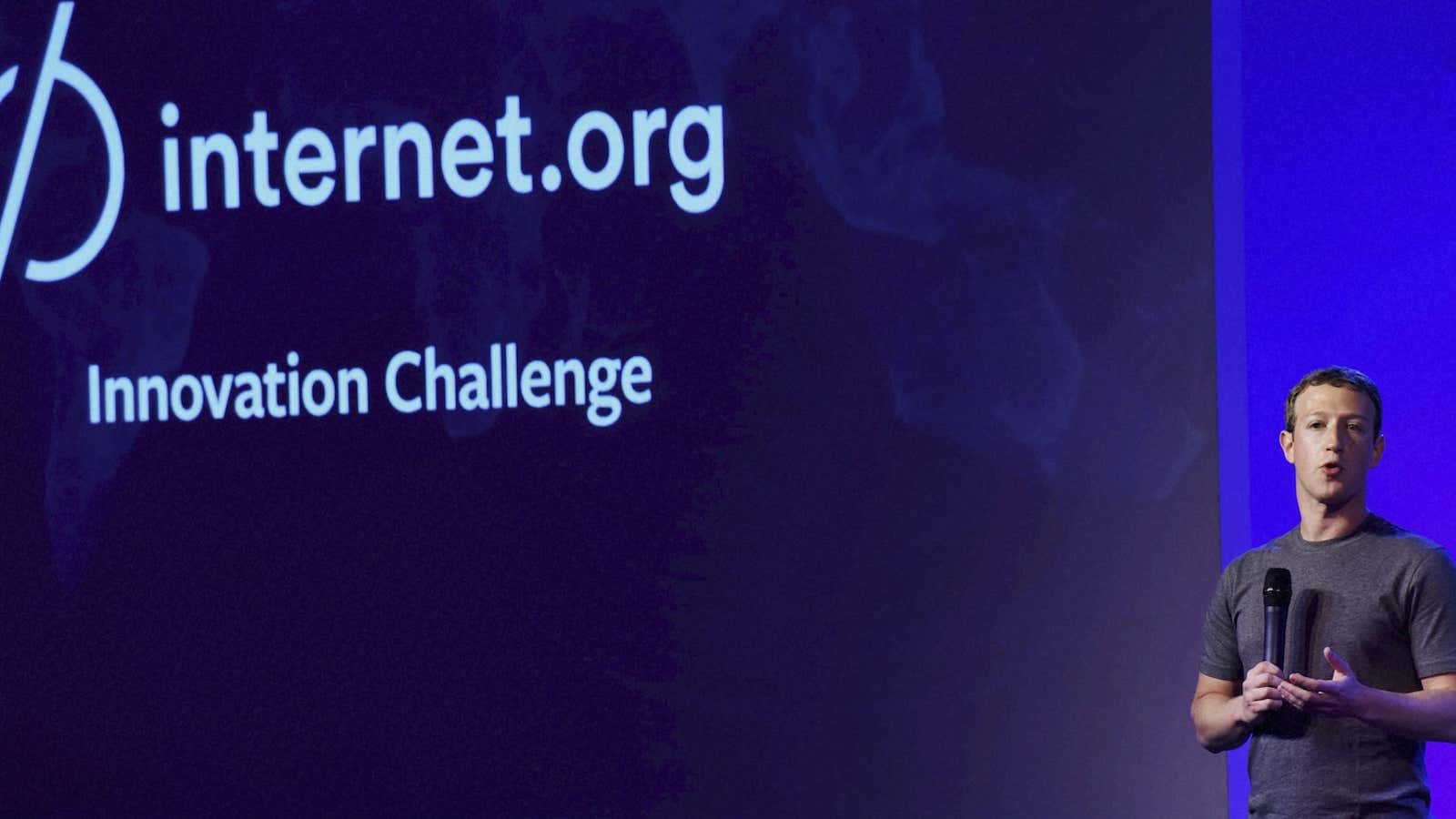Facebook’s Internet.org—the social networking giant’s initiative to provide free wireless access to certain websites in the developing world—is slowly disintegrating in India.
A group of prominent companies, including the media giant Times Group, have curtailed their involvement this week, amid a fierce national debate about net neutrality.
Critics have accused so-called zero-rating deals like Internet.org of violating net neutrality principles, because it involves special treatment for some online traffic.
Facebook launched Internet.org with the goal of connecting the two-thirds of the global population that does not have access to the internet. In India, it partnered with Reliance Communication to provide free access to 37 websites or apps, including its own.
But, following a massive backlash in the country over internet freedom, a number of those sites have pulled out. The Times Group has pulled out two of its apps—TimesJobs and Maharashtra Times—and has threatened to withdraw entirely. Travel portal Cleartrip.com and TV channel NDTV have also announced their plans to exit the project.
“As for the Times of India itself, the group commits to withdraw from internet.org if its direct competitors—India Today, NDTV, IBNLive, NewsHunt, and BBC —also pull out,” Times group said in a statement. ”The group also encourages its fellow language and English news publishers—Dainik Jagran, Aaj Tak, Amar Ujala, Maalai Malar, Reuters, and Cricinfo— to join the campaign for net neutrality and withdraw from zero rate schemes.”
India’s net neutrality debate started last month when the country’s telecom regulator, Telecom Regulatory Authority of India (TRAI), issued a consultancy paper on whether over-the-top services—apps delivered through the internet by telecom operators and internet service providers—should be licensed or regulated.
A week later, India’s largest mobile operator, Airtel, announced a plan called Airtel Zero. Under the plan, users were not to be charged for data consumed while browsing on some applications. E-commerce website Flipkart, which was part of the initiative, later pulled out following a backlash by net neutrality advocates.
“We will be committing ourselves to the larger cause of net neutrality in India,” Flipkart said in a statement. “We will be discussing over the next few days the details of actions we will take to support the cause.”
Since the issue was first raised by TRAI, more than half a million emails have been sent to the regulator. India’s central government has also said that it would not allow discriminatory internet access.
“We all need to strive for a non-discriminatory internet regime,” India’s telecom minister, Ravi Shankar Prasad said. “I salute the intellectual enterprise of the young people of India who have done so well in the field of internet.”
As for Facebook, CEO Mark Zuckerberg addressed the issue on April 15 by attempting to carve out common ground that would honour neutrality while also allowing zero-rate deals.
“I think net neutrality is important to make sure network operators don’t discriminate and limit access to services people want to use, especially in countries where most people are online,” Zuckerberg said in a Facebook Q&A session. “For people who are not on the internet though, having some connectivity and some ability to share is always much better than having no ability to connect and share at all. That’s why programs like Internet.org are important and can co-exist with net neutrality regulations.”
Start-up investor Mahesh Murthy had this to say in response:
Quartz has reached out to Facebook India and will update this piece when we hear back.
